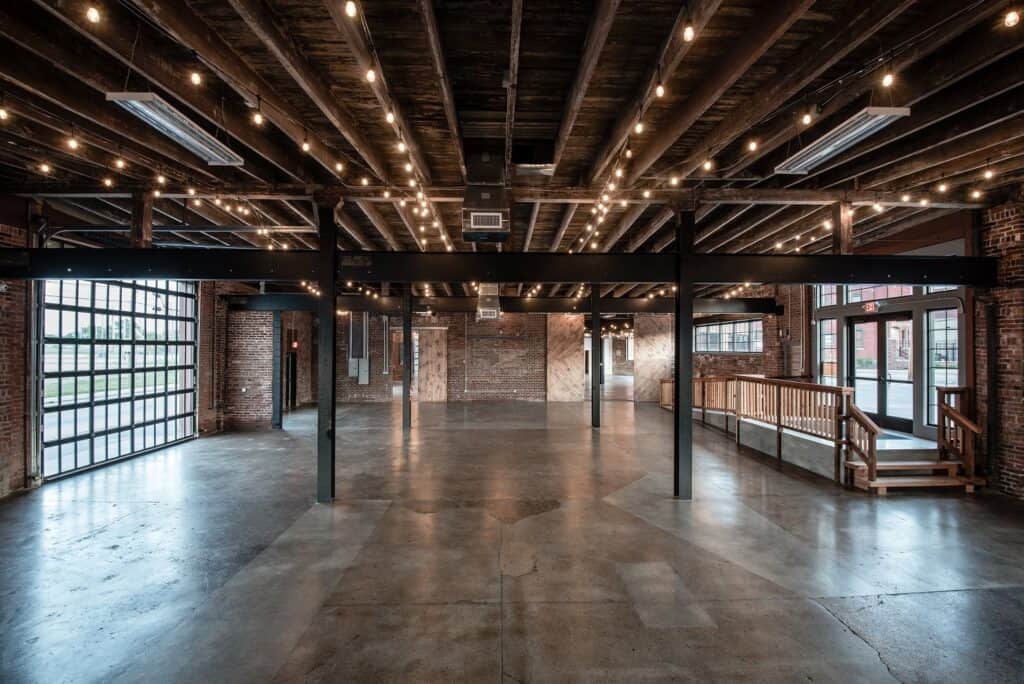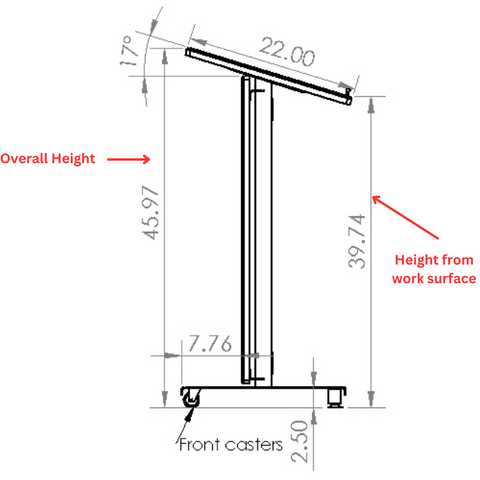How To Book A Venue For An Event
To book a venue for an event, search for suitable options, contact the venue directly, and confirm the availability and booking details. Are you planning an event and need a venue?
Booking the perfect venue is crucial for the success of your event. With so many options available, it can be overwhelming to make a decision. However, by following a few simple steps, you can secure the ideal venue. We will guide you on how to book a venue for your event.
We will cover everything from searching for suitable options to contacting the venue directly and confirming the availability and booking details. So, let’s get started and make your event a memorable one!

Credit: www.speakerscorner.co.uk
Researching Potential Venues
When it comes to planning an event, one of the most crucial decisions you will make is choosing the right venue. The venue sets the tone for your event and can greatly impact its success. To ensure you make the best choice, it is important to thoroughly research potential venues. This involves considering factors such as location, size and capacity, and amenities. In this article, we will explore each of these aspects to guide you in your venue selection process.
Location
The location of your venue plays a vital role in the overall experience of your event. You want to choose a location that is convenient for your attendees and aligns with the purpose of your event. Consider the following:
- Proximity to public transportation: It is crucial to choose a venue that is easily accessible by public transportation. This ensures that your attendees can reach the venue without any hassles.
- Parking facilities: If most of your attendees will be driving to the event, you need to ensure that the venue has ample parking space. Additionally, check if there are any parking fees or restrictions.
- Neighborhood: The neighborhood in which the venue is located can impact the overall experience of your attendees. Consider the safety, attractiveness, and amenities available in the vicinity.
Size And Capacity
The size and capacity of the venue are essential factors to consider to accommodate your attendees comfortably. It is crucial to choose a venue that can accommodate the anticipated number of guests. Consider the following:
- Capacity: Ensure that the venue has enough space to comfortably seat or accommodate a standing crowd. Check the maximum capacity allowed by law or the venue’s guidelines.
- Layout options: Different events require different layouts. Consider whether the venue offers various seating or room arrangement options to suit your event’s needs.
- Accessibility: The venue should be accessible for all attendees. Make sure it has ramps, elevators, or any other necessary facilities for individuals with disabilities.
Amenities
The amenities provided by the venue can greatly enhance the experience of your event. Consider the following amenities:
- Catering options: Check if the venue offers catering services or allows outside caterers. This can save you time and effort in organizing food and beverages for your event.
- Audiovisual equipment: Depending on the nature of your event, you may require audiovisual equipment such as microphones, projectors, and screens. Ensure the venue has the necessary equipment or can arrange for it.
- Wi-Fi and technology: In today’s digital age, having a reliable Wi-Fi connection is essential. Check if the venue provides Wi-Fi access and if it can handle the technology needs of your event.
- Restrooms and facilities: Clean and well-maintained restrooms are a basic necessity for any event. Check if the venue has enough restrooms, as well as any additional facilities required for your event, such as dressing rooms or breakout areas.
By researching potential venues thoroughly and considering factors such as location, size and capacity, and amenities, you can ensure that you book a venue that meets the needs of your event and leaves a lasting impression on your attendees.

Credit: hartfordsocietyroom.com
Setting A Budget
Looking to book a venue for your event? Setting a budget is essential before you begin your search. Plan ahead to ensure a successful and cost-effective event.
Determining Costs
Determining the costs of booking a venue for an event is an essential step in setting a budget. By considering all the potential expenses involved, you can allocate your funds wisely. To determine costs, start by researching the average prices of venues in your desired location. Take into account the size of the venue, its amenities, and any additional services you may require. Make sure to factor in any hidden costs such as security fees, cleaning fees, or insurance coverage. Creating a comprehensive list of all potential costs will help you establish a realistic budget for your event.Negotiating Prices
Negotiating prices is a crucial skill when booking a venue. Don’t be afraid to negotiate to ensure you get the best possible deal. Start by gathering multiple venue options and comparing their prices. Once you have a clear understanding of their costs, reach out to each venue and express your interest. Mention that you are exploring various options, which can encourage them to offer discounted rates or additional perks. When negotiating, be confident but respectful. Highlight your event’s potential to bring positive exposure and added value to their venue. Remember, even a small discount can significantly impact your overall budget.Table: Sample Budget Allocation
| Expense Category | Allocated Budget (USD) |
|---|---|
| Venue Rental | 5,000 |
| Catering | 3,000 |
| Decorations | 1,000 |
| Entertainment | 2,500 |
| Marketing | 1,500 |
| Staffing | 2,000 |
| Additional Expenses | 1,500 |
| Total | 16,500 |
Contacting Venues And Making Inquiries
To book a venue for an event, reach out to venues directly through phone or email. When making inquiries, provide specific details about the event, such as the date, time, and number of attendees, to ensure accurate responses.
Contacting venues and making inquiries is a crucial step in booking a venue for your event. Whether it’s a conference, wedding, or a corporate gathering, it’s essential to reach out to potential venues to gather the necessary information and make an informed decision. In this section, we will discuss the most suitable method of communication, whether it be via email or a phone call. We will also provide you with a list of important questions to ask the venue representatives.Email Or Phone Call?
When it comes to reaching out to venues, you have two primary options: email or phone call. Both methods have their advantages and it ultimately depends on your personal preference and the urgency of your inquiry. Email correspondence allows you to have a written record of the conversation, making it easier to refer back to important details later on. On the other hand, a phone call allows for immediate interaction and the possibility of building a rapport with the venue representative.Questions To Ask
When you contact venues to inquire about their availability and suitability for your event, it’s important to ask the right questions to gather all the necessary information. Here are some questions you should consider asking: 1. Availability: Is the venue available on the date and time you require? 2. Capacity: How many people can the venue accommodate? Does this capacity include space for necessary equipment or props? 3. Facilities: What facilities does the venue offer? This may include audio-visual equipment, Wi-Fi, catering services, parking, or any other amenities that are important for your event. 4. Rates and Packages: What are the rental rates for the venue? Are there any additional charges or packages available? 5. Booking Terms: What are the terms and conditions for booking the venue? Are there any cancellation policies or deposit requirements? 6. Restrictions: Are there any restrictions or limitations that you should be aware of? This could include noise restrictions, curfews, or any specific rules that the venue has in place. 7. Layout and Setup: Can the venue accommodate your desired event layout and seating arrangement? Are there any limitations or suggestions regarding setup? 8. Additional Services: Does the venue offer any additional services such as event planning assistance, decoration, or technical support? 9. References and Reviews: Can the venue provide references from previous clients or do they have any online reviews/testimonials? Remember, contacting venues and making inquiries is a crucial step to ensure that you find the perfect venue for your event. By asking the right questions and exploring all the necessary details, you can make an informed decision that aligns with your event’s requirements.
Credit: www.peerspace.com
Visiting And Evaluating Venues
In order to book the perfect venue for your event, it is essential to visit the potential locations and evaluate their suitability. This step is crucial to ensure that you make an informed decision and select a venue that meets all your requirements. In this section, we will discuss the key aspects of visiting and evaluating venues, from scheduling a site visit to assessing suitability.
Scheduling A Site Visit
Scheduling a site visit is the first step towards selecting the right venue for your event. Once you have shortlisted a few potential locations, reach out to the venue managers to set up a visit. It is important to schedule the visit well in advance to secure your preferred date and time.
During the site visit, pay attention to the following:
- The physical appearance and ambiance of the venue.
- The size and layout of the space, ensuring it can accommodate your event requirements.
- The amenities and facilities available, such as audiovisual equipment, Wi-Fi, and parking.
- The accessibility of the location for your attendees.
- The professionalism and helpfulness of the venue staff.
Assessing Suitability
Once you have visited the potential venues and gathered all the necessary information, it is time to assess their suitability for your event. This involves carefully considering various factors to make an informed decision.
Consider the following aspects when assessing the suitability of a venue:
- The capacity of the venue to accommodate the expected number of attendees.
- The availability of the venue on your desired event date and time.
- The flexibility of the venue in terms of setup options and customization.
- The cost of renting the venue, including any additional charges or fees.
- The location of the venue and its proximity to transportation facilities.
By thoroughly evaluating the venues you visit, you can make an informed decision and choose a location that not only meets your requirements but also impresses your attendees. Keep in mind that finding the perfect venue takes time and effort, but the end result will be well worth it.
Finalizing The Booking
Once you have found the perfect venue for your event and ensured that it meets all of your requirements, it’s time to take the necessary steps to finalize the booking. This involves:
Signing Contracts
Signing a contract is an essential part of the venue booking process. It is a legal agreement between you and the venue, outlining the terms and conditions of your reservation. When signing contracts, keep the following points in mind:
- Read the contract carefully to understand all the terms and conditions.
- Ensure that all the details, such as the event date, time, duration, and any additional services or equipment required, are accurately mentioned.
- Pay close attention to cancellation policies and any penalties involved. It’s important to know the consequences if you need to cancel or reschedule your event.
- If you have any concerns or questions about the contract, don’t hesitate to seek clarification from the venue’s representative before signing.
By signing the contract, you are confirming your commitment to the event and agreeing to abide by the stated terms and conditions.
Payment And Deposit
Once you are satisfied with the contract terms and have signed it, the next step is to make the necessary payment and deposit to secure the venue for your event. Here are some points to note:
- Clarify the payment schedule with the venue, including the due dates and accepted modes of payment.
- Calculate the total cost of the venue booking, factoring in any additional services or equipment you require.
- Pay attention to the deposit amount and whether it is refundable or non-refundable.
- If there is a deposit, ensure that you understand the timeline for returning the deposit after the event.
Clear communication and timely payment are crucial to finalize the booking. Make sure to adhere to the agreed-upon payment schedule to avoid any complications.
Frequently Asked Questions On How To Book A Venue For An Event
How Do I Find The Perfect Venue For My Event?
Finding the perfect venue for your event can be a challenge, but with some research and planning, you can find the ideal space that meets all your needs.
What Factors Should I Consider When Booking A Venue For An Event?
When booking a venue for your event, consider factors such as location, capacity, amenities, budget, and accessibility to ensure a successful and seamless experience for your guests.
What Questions Should I Ask When Touring A Potential Event Venue?
When touring a potential event venue, ask questions about pricing, availability, event restrictions, catering options, and any additional fees or services to make an informed decision and avoid any surprises later on.
Conclusion
Planning an event and booking a venue can be a daunting task, but with the right knowledge and tips, it can become a seamless process. From considering the location and capacity to discussing the amenities and negotiating the contract, every step is crucial.
By following the steps outlined in this blog post, you can confidently book a venue that matches your event’s needs and ensures a successful and memorable experience for all attendees. Remember to plan ahead, communicate effectively, and carefully review the terms and conditions.
Happy venue hunting!



